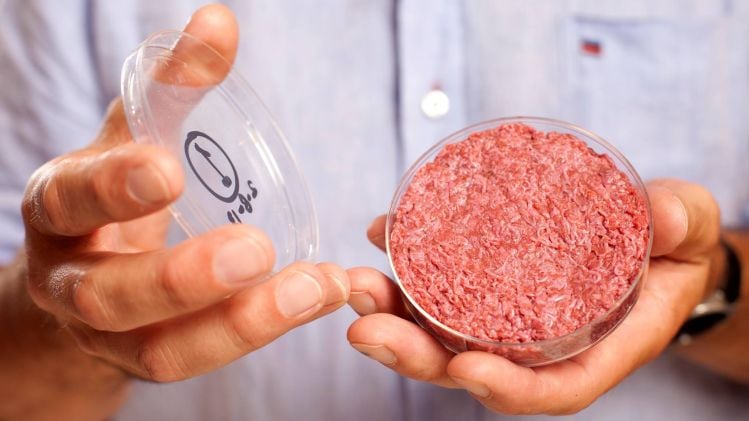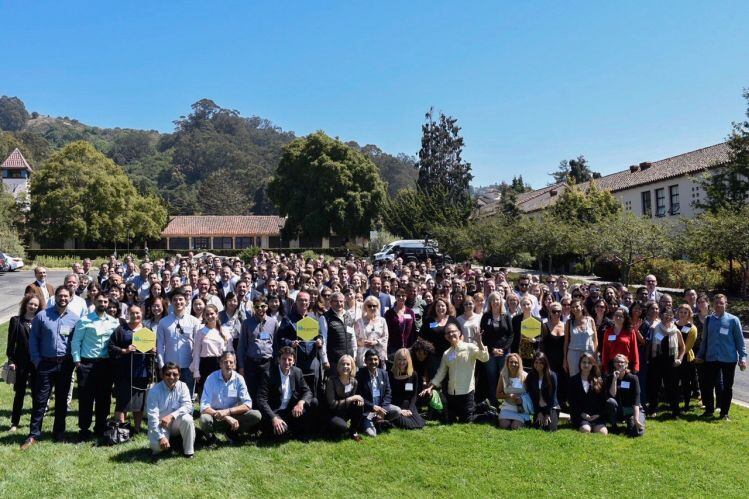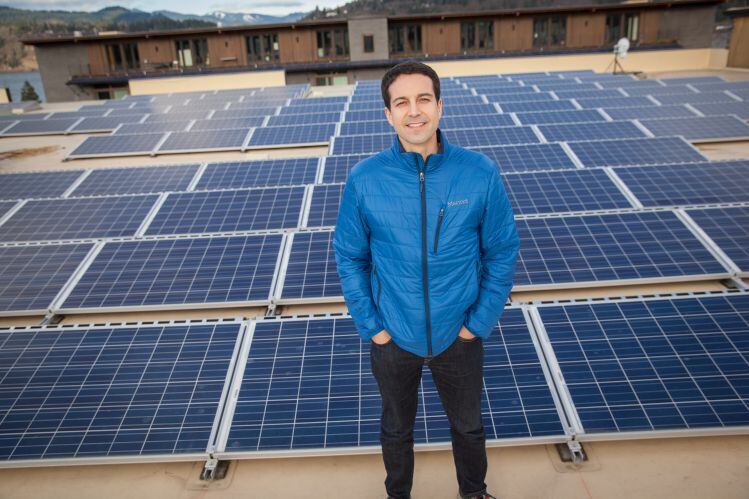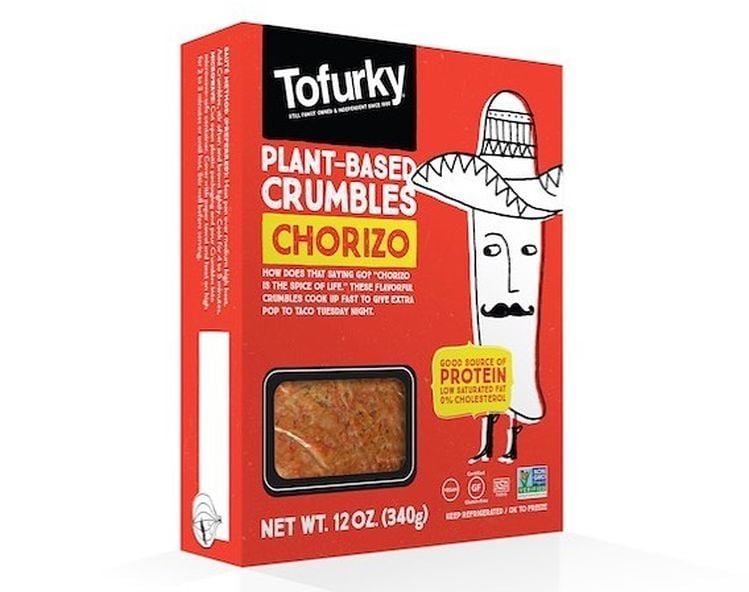Cell-based meat brands, who converged at UC Berkeley last week for the Good Food Institute’s (GFI's) Good Food Conference, met up after the event and “decided that, for the purposes of working with traditional meat companies and US regulators, we are abandoning the term ‘clean meat’ in favor of cell-based meat,” said one attendee.
“We also decided to form an industry trade association.”
Asked whether in the first instance the stakeholders would collectively fund a full-time person to head the new association, the attendee said it was too early to talk about funding and resourcing, but said that, "Much of our discussion was focused on developing a lexicon for cell-based meat. This will be one of the functions of the trade association.
"We discussed the pros and cons of the term 'clean meat,' and decided to shift our label to 'cell-based meat.' Traditional meat companies can be our biggest ally if they want to work with us. We can help them transition from industrial animal agriculture to cell-based meat. Cell-based meat is a better label to bring them on board. We want to make winners instead of losers. Losers will fight you, winners will fight with you."
A second attendee told FoodNavigator-USA that more details would be released soon, but added: “We settled on [using the terms] ‘cell-based meats/fish’ and forming a trade association, but the details are still being worked out.”

The USDA and the FDA will host a joint meeting on October 23-24, 2018 on cell-based meat – meat produced by culturing animal cells outside of an animal – to thrash out how the sector might be regulated and how such products should be described on food labels.
GFI: There’s a real need for cell-based meat companies to come together
While plant-based meat and dairy companies formed a trade association (the Washington DC-based Plant Based Foods Association) in 2016, cell-based meat companies have not had a single point of contact with whom regulators at the FDA and the USDA and lawmakers on Capitol Hill can interact, noted Good Food Institute director of policy Jessica Almy during a panel debate on Friday.
“I think there’s a real need for the [cell-based meat] companies to come together on a shared regulatory strategy and lobbying too.
“There are ways to ask for more R&D funding for clean meat and other things that can help the industry, [but] we do need to think about how this industry can fight off threats. So [for example] right now, there's a provision in the House agriculture spending bill that would require USDA to create regulations for clean meat, which would directly undermine the work that FDA has been doing."
A petition filed by the US Cattlemen’s Association (USCA) to restrict use of the terms ‘beef’ and ‘meat’ to products from animals “born, raised, and harvested in the traditional manner" (a sentiment enshrined in new legislation in Missouri) has also underscored the need for cell-based meat companies to join forces and engage with regulators, said the GFI, which is party to a lawsuit challenging the Missouri law.
"A couple of the [cell based meat] companies have been doing some work on the Hill, and GFI has been doing some work on the Hill, but there's certainly a real need to make sure that the legislators... and the appropriators... see that this [requiring USDA to create a new reg framework for cell-based meat] is a foolish path forward [the GFI believes existing regulatory frameworks will suffice, with FDA taking the lead]. There's a real need for this industry to come together and the timing is good for a coalition or a trade association."

"I was a proponent of using the term 'cultured meat' until numerous consumer surveys found it really made people less likely to want to eat such meat..."
Paul Shapiro - author of Clean Meat: How Growing Meat Without Animals Will Revolutionize Dinner and the World - weighs into the debate over labeling conventions HERE.
There needs to be a consistent message from the industry
Fellow panelist Ann Venemann, former US secretary of agriculture, said that lawmakers needed to be educated about cell-based meat, adding: "How are we going to educate people on what this really is? There needs to be a consistent message from the industry."
Speaking to FoodNavigator-USA this morning, Almy said that she did not attend the meeting, but added: "We are supportive of companies using whatever terminology they are most comfortable with. We are in the process of doing some consumer research, and once we have done so, we will want to have a full discussion that includes all of the market players, including New Harvest, the Cellular Agriculture Society, Food Frontier, all the companies, and everybody else with a vested interest who works in this space."

“There will be babies born that may grow up never having eaten meat from a live animal, so they won’t be confused about what it [cell-based meat] is.”
Barb Stuckey, president and chief innovation officer, Mattson
What’s in a name?
The term 'clean meat’ – coined because cell-based meat is cultured in a clean environment and because it has a lower environmental footprint (like 'clean energy') - has become more widely used in the media over the past year as the Good Food Institute has sought to popularize the term.
However, it has had some pushback, given its tacit implication that regular meat is 'dirty,’ coupled with confusion over what it means, although it’s clearly more consumer-friendly than ‘synthetic,’ 'lab-grown’ and 'in-vitro’ meat.
Speaking at the conference on Friday, Seth Goldman, executive chairman at plant-based meat brand Beyond Meat said ‘clean meat’ was an odd term – “I don’t think it’s a good term from a branding perspective.”
However, Barb Stuckey, president at food development specialist Mattson, also had reservations about how consumers might respond to ‘cell-based meat’ – a term which the North American Meat Institute (representing regular meat producers) and cultured meat start-up Memphis Meats recently told President Trump they planned to use from now on.
“I hear the word ‘cell,’ I think laboratories, the human body,” cautioned Stuckey. “That word worries me very much.”

Brands will become way more important than the descriptive terms firms use on pack in small print
That said, in the early days, brands will be far more important than the ‘common or usual name’ or descriptor on pack for cell-based meat companies, she predicted.
“Right now, it doesn't really matter what they call it; what really matters is branding,” said Stuckey, noting that Impossible Foods does not talk about veggie burgers, but promotes its brand: the ‘Impossible Burger,’ just as Beyond Meat promotes its ‘Beyond Burger.’
Similarly, savvy restaurant operators featuring the latest generation of meat-free burgers (which are targeting meat eaters and vegans/vegetarians alike) are not getting hung up about naming conventions, or shouting about health – or saving the planet - on menus, she said.
They’re enticing shoppers with pictures of thick, juicy, delicious meaty burgers (that happen to be made from plants) and using flavor-first, indulgent language.
“Brands will become way more important than the descriptive terms you use on pack in small print.”
Further down the road, should cell-based meat become ubiquitous, it may simply be described as ‘meat,’ as that’s what it is, observed Stuckey.
“There will be babies born that may grow up never having eaten meat from a live animal, so they won’t be confused about what it [cell-based meat] is.”
- Read more highlights from the Good Food Conference - which attracted more than 400 delegates and many more watching via livestream - later this week...




